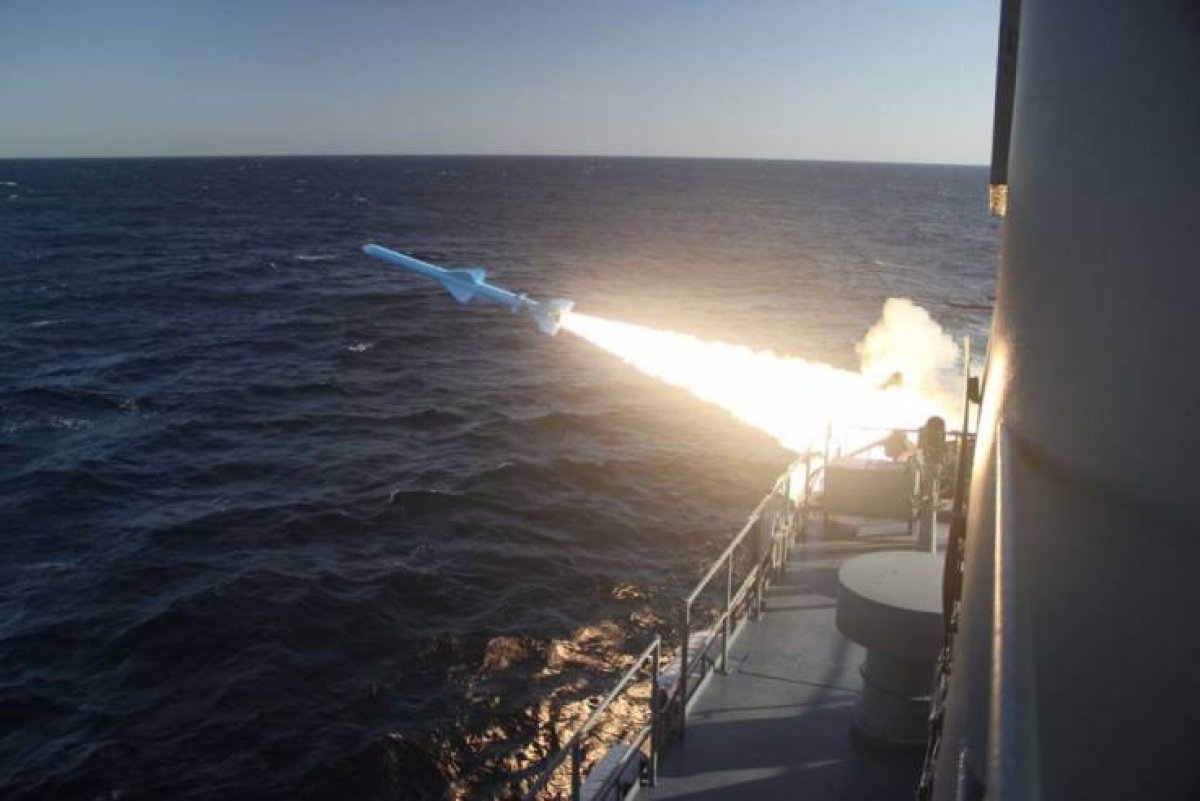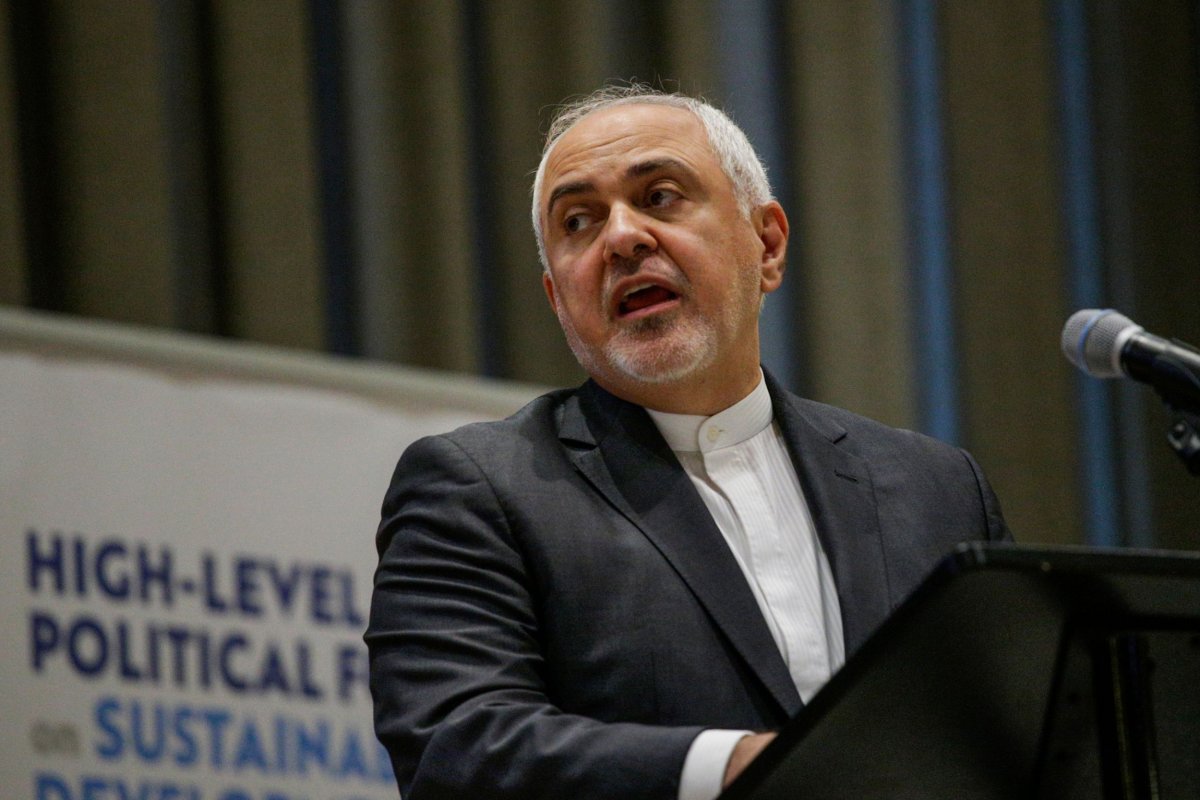Russia's top diplomat warned the United States to stop blaming Iran for the increasing unrest in the Middle East, arguing that Washington was behind the ongoing crisis there and risked sparking a conflict.
In an interview Wednesday with Moscow-based newspaper Argumenty i Fakty, Russian Foreign Minister Sergey Lavrov defended ongoing ties with both Iran and Israel as having "intrinsic value" for his country, despite the worsening feud between the archfoes. The two have exchanged threats as the U.S. stepped up its "maximum pressure" campaign against Iran in hopes of isolating it internationally, a strategy that Lavrov condemned as destabilizing.
"The escalating tension in the region we are witnessing today is the direct result of Washington and some of its allies raising the stakes in their anti-Iranian policy," Lavrov said.
"The U.S. is flexing its muscles by seeking to discredit Tehran and blame all the sins on the Islamic Republic of Iran," he added. "This creates a dangerous situation: a single match can start a fire. The responsibility for he possible catastrophic consequences will rest with the United States."

Russia was joined by China, the European Union, France, Germany and the United Kingdom in signing a 2015 nuclear deal championed by the U.S. and Iran, which agreed to curb Tehran's nuclear activities in exchange for sanctions relief. Last year, President Donald Trump unilaterally abandoned the agreement, accusing Tehran of using unfrozen funds to finance militant groups and develop ballistic missiles, leaving the accord's other signatories to salvage it.
Since then, the U.S. has increasingly restricted international trade with Iran by threatening countries, including allies, with sanctions. The Pentagon has also bolstered its military presence in the Middle East amid what the White House has claimed was a heightened threat posed by forces link to Tehran, which the U.S. has accused of attacking oil tankers in the Gulf of Oman.
Last month, the elite Revolutionary Guards downed a U.S. Navy spy drone within or near Iranian airspace, a move that led Trump to order strikes that were suspended only at the last minute. Iran has also begun enriching uranium above limits outlined in the deal as Europe struggled to normalize trade ties with Tehran in the face of U.S. pressure.
The EU decided against triggering a dispute resolution mechanism in response to Iran's actions, calling them "reversible" and not a "significant" example of non-compliance. Reacting to this, Israeli Prime Minister Benjamin Netanyahu drew comparisons to "the European appeasement of the 1930s" toward Nazi Germany.
Lavrov dismissed this comparison during Wednesday's interview, saying "it is not appropriate to project what happened in Europe in the 1930s on the current developments in the Middle East." He recalled how former U.K. Prime Minister Neville Chamberlain and French Prime Minister Edouard Daladier "sought to appease Hitler in order to direct the German military might against the USSR."
"We are not seeing anything of this kind today," Lavrov argued. "Iran regularly reaffirms to us its interest in regional stability through dialogue with all the interested countries, including the Gulf Arab states. In addition to this, Tehran has always stressed that it did not intend to undertake any aggressive action."

Iranian Foreign Minister Mohammad Javad Zarif told NBC News on Tuesday that the door for diplomacy with the U.S. too "was open" but that nuclear negotiations could only take place once the Trump administration removed its sanctions. He also noted the extensive U.S. military support to Arabian Peninsula countries such as Saudi Arabia and the United Arab Emirates, arguing that Iran would need to maintain its missile program in response to such threats.
While Secretary of State Mike Pompeo later that day suggested that "for the first time, the Iranians are ready to negotiate on their missile program," Tehran's mission to the United Nations dismissed this interpretation of Zarif's "hypothetical" remarks and emphasized that "Iran's missiles are absolutely and under no condition negotiable with anyone or any country, period."
The nuclear deal's other signatories have called on the U.S. and Iran to both de-escalate the grave situation in the Persian Gulf, but the U.K.'s seizure of an Iranian supertanker accused of attempting to transport oil to Syria via Gibraltar has only deepened the crisis. The move would have been an apparent violation of EU sanctions against the Syrian government, though Iranian officials have argued they were not subject to such restrictions and denied the ship was destined for their Arab ally anyway—though they have threatened retaliation.
Iran has also denied a recent alleged incident in which Revolutionary Guards vessels were said to have attempted to approach a U.K. oil tanker only to be chased off by a U.K. warship. In a separate incident earlier this week, the U.S. reportedly suspected Iran to be behind the disappearance of a UAE-based, Panamanian-flagged oil tanker, but Foreign Minister Ministry spokesperson Abbas Mousavi said the Islamic Republic had merely offered their assistance after the vessel broke down.
Uncommon Knowledge
Newsweek is committed to challenging conventional wisdom and finding connections in the search for common ground.
Newsweek is committed to challenging conventional wisdom and finding connections in the search for common ground.
About the writer
Based in his hometown of Staten Island, New York City, Tom O'Connor is an award-winning Senior Writer of Foreign Policy ... Read more
To read how Newsweek uses AI as a newsroom tool, Click here.








